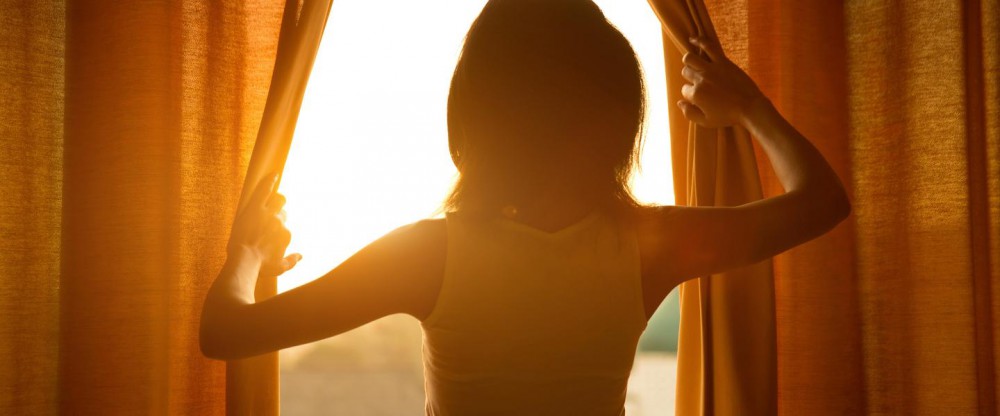Non-24-hour Sleep Wake Disorder Associations with Depression
Coping with Non-24-Hour Sleep Wake Disorder (Non-24) by forcing one's self to keep a sleep schedule that matches the 24-hour day-night norm can lead to sleep deficits with symptoms that may mimic depression, and a possible misdiagnosis of Non-24 for a non-related psychiatric condition. Sleep deprivation itself, however, is a risk factor for depression, and can become an additional problem to manage alongside Non-24 (i.e., a co-morbidity) rather than a misdiagnosis.
As previously mentioned, Non-24 is caused by different mechanisms in blind and sighted individuals. For sighted subjects, several mechanisms for Non-24 have been suggested, including deficiencies in the ipRGC cells of the retina, under- or over-sensitivity of the eye to light, differences in the intrinsic circadian feedback loop, problems with melatonin production, etc. This is a serious disorder, extremely disruptive of people's lives, and it is not known how many people suffer from it
For totally blind patients, the disorder is caused by an inability of the circadian pacemaker to be synchronized to the 24-hour cycle by light due to the lack of a functional retina–retinohypothalamic tract–suprachiasmatic nuclei (RHT-SCN) pathway.
Non-24 can be considered intrinsic, physical, irreversible (but treatable) and not associated with any psychiatric condition in blind subjects. One previous study reported that of patients who had no psychiatric problems before the development of Non-24 symptoms, about a third developed major depression thereafter. In over a third of these depressed subjects, the symptoms of depression increased when they slept during the daytime and decreased slightly when they slept during the night. This observation suggests that the delay of sleep timing relative to the internal body clock may be an underlying cause of both Non-24 and co-morbid depression.
Correction of the delay of sleep timing may be important for the long-term treatment of both symptoms. It is very important to recognize psychiatric co-morbidities in Non-24 patients early because failure to do so may lead to unnecessary impairments in personal, academic, and family functioning at critical ages. For example, Non-24 is known to cause depression in the totally blind. When planning the initial phases of treatment, changes in sleep-focused psychiatric intervention are considered crucial for stabilizing mood and behavior. Both patients and their doctors should pay close attention to the stepwise patterns of co-morbid psychiatric disorders and Non-24 for early intervention.
Non 24-Hour Sleep Wake Disorder and Depression
Non 24-Hour Sleep Wake Disorder (Non-24) is often misdiagnosed as depression because symptoms of sleep deprivation often overlap with those of depression.
| Common Symptoms of Depression | Common Symptoms of Non-24 |
|---|---|
| Feelings of hopelessness | — |
| Insomnia | Insomnia |
| Daytime sleepiness | Daytime sleepiness |
| Fatigue | Fatigue |
| Difficulty concentrating | Difficulty concentrating |
| Irritability | Irritability |
People with Non-24 may feel misunderstood by their friends, co-workers, family members, and even their doctors because they do not understand why people with Non-24 cannot just re-program their body clocks to sleep on a normal schedule. People with Non-24 may also find it difficult, or even impossible, to maintain employment, keep appointments, care for their children, and maintain a social life. Things that require attention for long periods of time, such as watching a movie, going to a play or a sporting event, or sitting through a child’s concert, may also be difficult. These restrictions in day-to-day activities can contribute to feelings of depression. For people who are already suffering from depression, these impairments in daytime alertness and nighttime sleep can make their depression worse.
It’s important that people with Non-24 who also suffer from depression seek treatment. If left untreated, both sleep deprivation and depression can increase a person’s risk for chronic health problems, such as heart disease.
Sleep Apnea is a sleep disorder in which breathing is briefly and repeatedly interrupted during sleep. Learn how to cope with this sleep-related breathing disorder.You don't have to struggle with sleepless nights. Help is available! There are treatment options for insomnia, ranging from behavioral therapy to the use of prescription medication or a combination of the two. Talk to your healthcare professional if you have any trouble falling asleep and/or staying asleep and to properly diagnose insomnia symptoms. Treatment options include: Behavioral therapy is...Taking care of an infant is tiring work, and falling asleep whenever the opportunity arises seems like it should be...An infant in the house means normal routines are going to go through some adjustments. Feeding, burping, rocking, and changing...Lack of sleep typically takes the blame for exhaustion, and if you’re logging less than seven hours of shut-eye each...Everyone dreads those long nights of tossing and turning when sleep just doesn’t seem to come. The issue is more...For people juggling family, work, and a personal life, feeling exhausted may seem like it’s just par for the course....It may seem like an easy form of entertainment and distraction, but tots and tech don’t mix well. For starters,...Whether you’re cramming for an exam or trying to beat the clock on a job deadline, there are times when...When the daylight hours lengthen and school lets out for the summer, it’s easy to take a relaxed attitude toward...

Source: Internet





